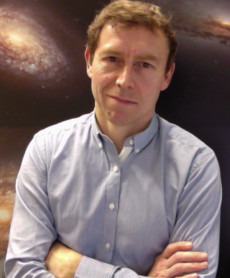“Searching for Kilonovae in the nearby Universe”
The LIGO-Virgo gravitational wave detectors carried out the their third observing run (called O3) during 2019-2020. Many black hole mergers were detected, along with one confident binary neutron star merger and a possible black hole – neutron star system. At the same time, wide-field optical sky surveys are discovering a remarkable diversity in how stars merge, collapse and explode. Only one gravitational wave source has had a discovery of an electromagnetic counterpart.
In 2017 a a pair of merging neutron stars produced what we now call a kilonova (“a thousand novas”!). This was a remarkably fast transient, which decayed in a matter of days. Many surveys have been searching for these kilonovae without success but given they can be as bright as supernovae they should be detectable irrespective of gravitational wave signals. I will discuss our efforts to uncover this new class of object and reasons why we haven’t found them yet.
Stephen Smartt is a professor of astrophysics at Queen’s University. He has worked at the Isaac Newton Group of telescopes on La Palma and the University of Cambridge. He leads several international projects, mostly focused on regularly surveying the sky to find anything that changes and his group manage the large scale data processing of two NASA funded surveys. He has discovered supernova progenitors, the faintest supernovae and most luminous explosions as well as mergers of compact stars. In 2018 he was awarded the Royal Irish Academy’s Gold Medal and was elected a Fellow of the Royal Society in 2020.
Paul Evans is inviting you to a scheduled Zoom meeting.
Topic: IAA Prof Stephen Smartt
Time: Jan 6, 2021 07:15 PM London
Join Zoom Meeting
https://us02web.zoom.us/j/83574479742?pwd=WDZhZm5kUFVGeXg0ZCt2a3Y4Skp5UT09
Meeting ID: 835 7447 9742
Passcode: 322946
This talk will also be Simulcast on our YouTube Channel
https://www.youtube.com/user/irishastronomy/videos

